Input Boxes
The inputs of an abstraction are represented inside the patch by green boxes. When these boxes are assigned default values , the patch can be evaluated internally and autonomously.
Editing Inputs
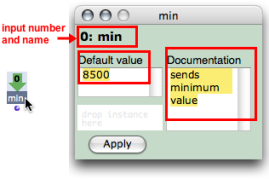 | To edit the inputs of an abstraction, double click on an input box to open its editor.The editor displays :
To edit information :
|
To display the information :
| 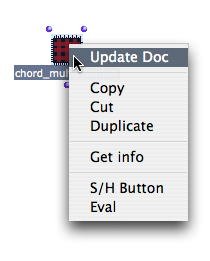 |
Using Default Value
Default values allow to evaluate an internal patch from the inside .
The lower left frame of the input editor can take an instance as default input value.
To add an instance or a global variable there, drag an instance box from a patch editor – or from the Globals package to this frame.
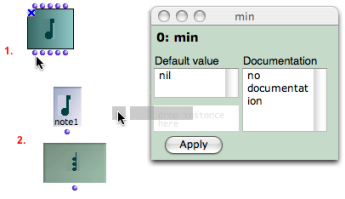
SHIFT + Cmd click on an outlet to create an instance in a patch editor.
Internal Evaluation
Default values are designed to test if a patch works with an internal evaluation.
To evaluate a patch internally, Cmd click on the internal output box.
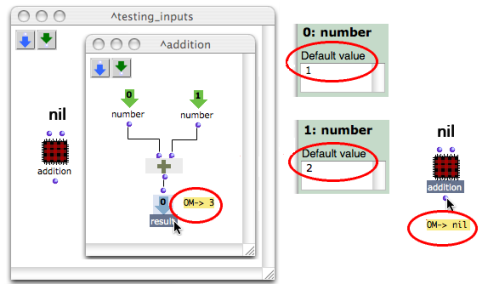
Default values are ineffective as soon as a patch is evaluated from the outside .
Default values are also ineffective if values are sent to the patch from other boxes. | 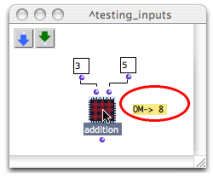 |
